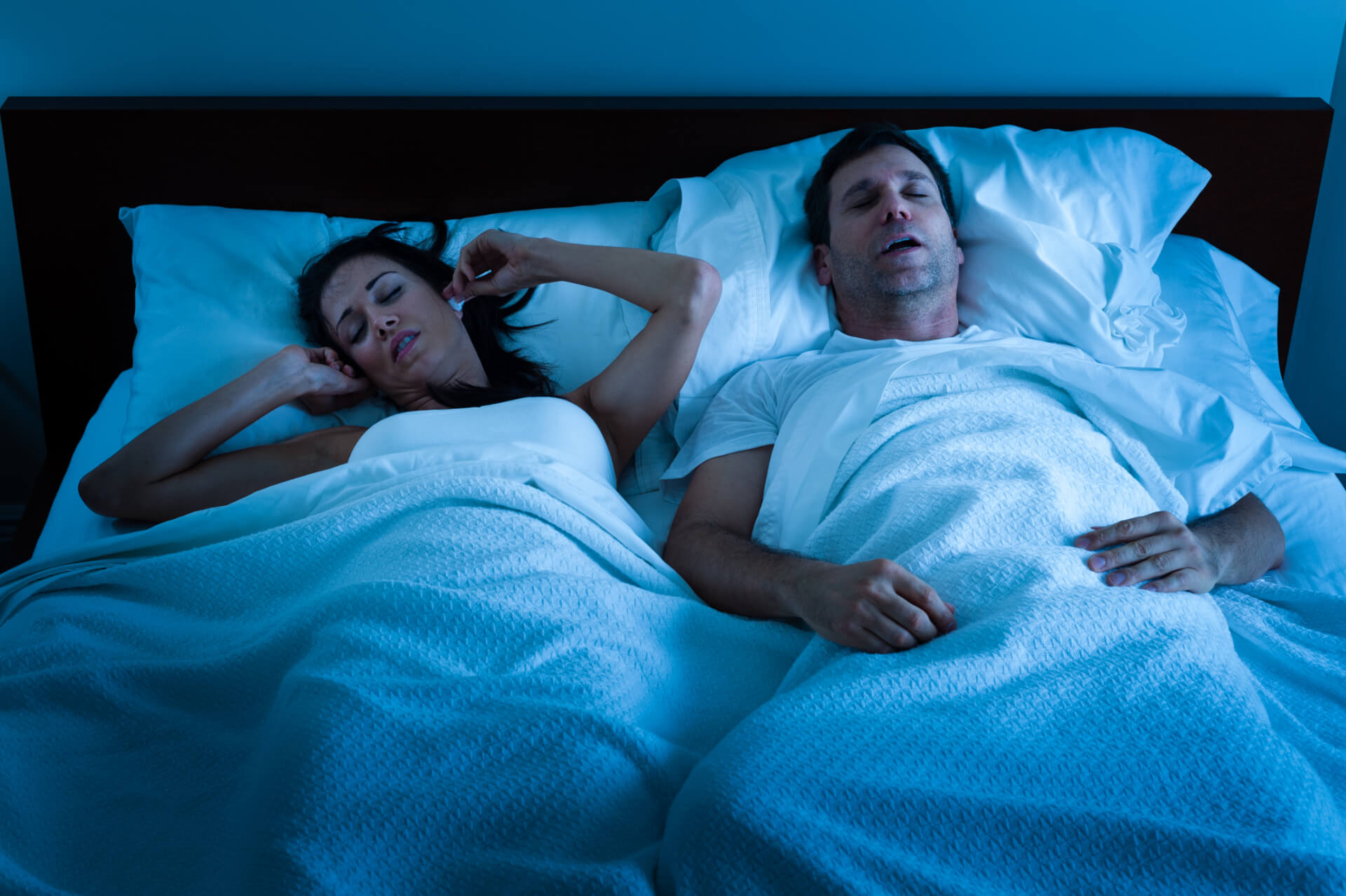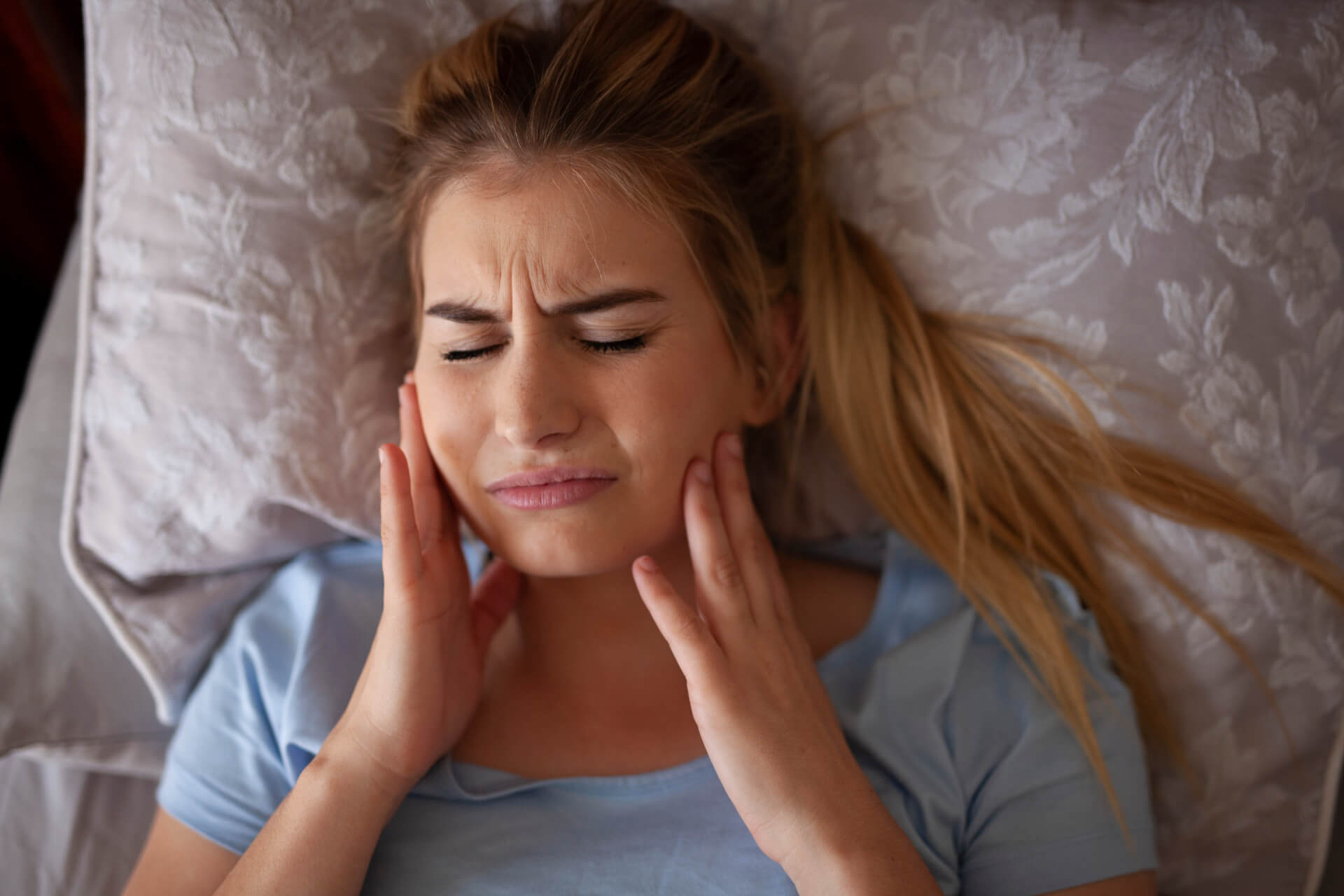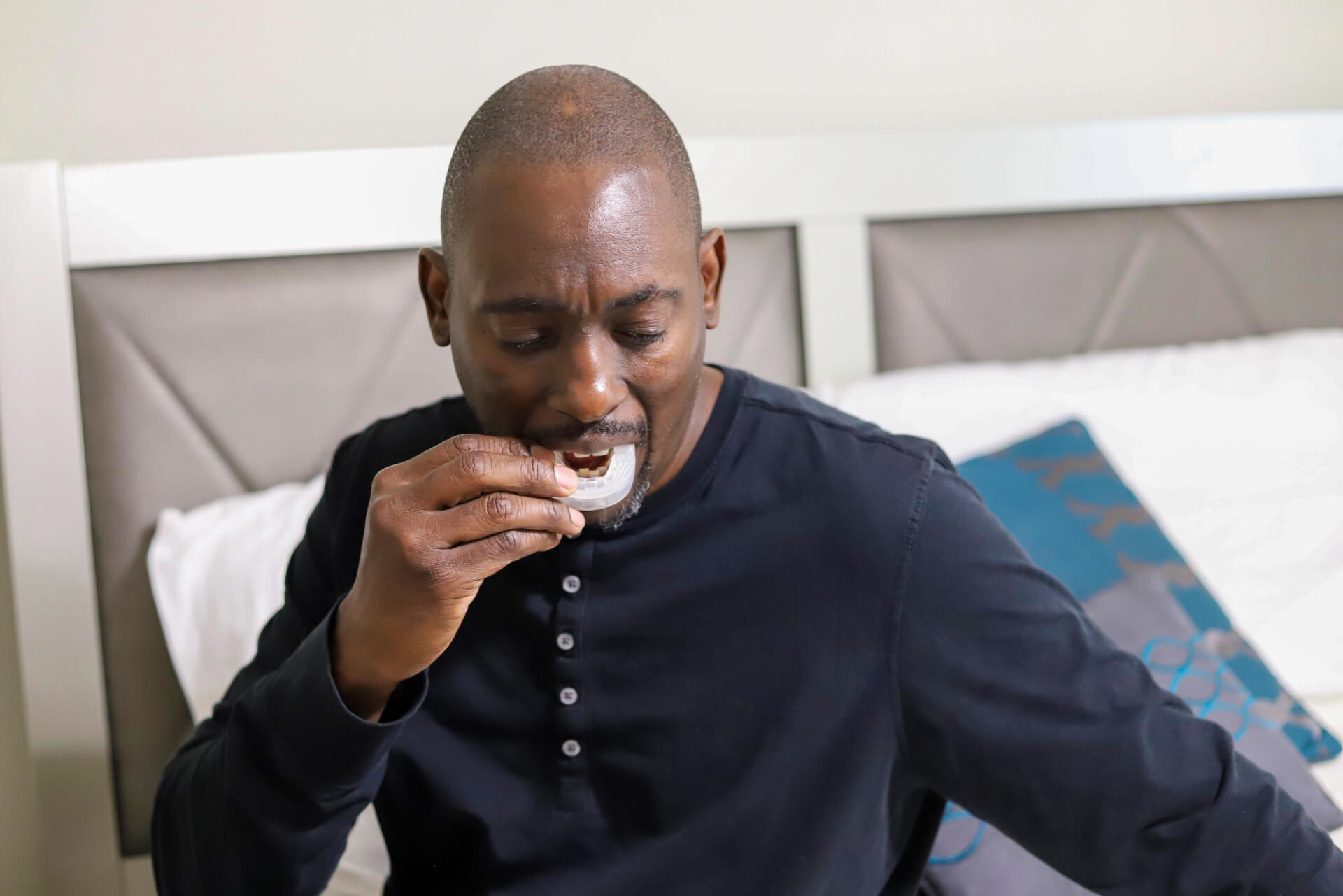
Everybody snores from time to time. Maybe you find that you snore after a few drinks, or when you roll over onto your back while catching up on some well needed Z’s. But when snoring becomes chronic, it may be a symptom of an underlying issue with your dental health.
Chronic snoring, or sleep apnea can become more than just an annoyance to the people sleeping around you; they can lead to issues ranging from restless sleep to various long-term health problems like heart disease.
There are all kinds of factors that can cause snoring and sleep apnea, and issues with your dental health may be one of them. Keep reading to learn more about the dental causes of snoring to discover how your teeth might be affecting your sleep.

Dental Causes Of Snoring
Erupting Wisdom Teeth
The eruption of wisdom teeth can lead to a whole array of problems for your dental and overall health. One of the issues that can arise is snoring or sleep apnea.
If your wisdom teeth are erupting and your mouth is too small to fit them, they may only partially erupt. This can lead to an infection known as pericoronitis, as bacteria from food and other particles is trapped under the swollen gums. Pericoronitis can lead to you sleeping with your mouth open, causing you to snore more frequently.
Grinding Teeth
Bruxism, or grinding your teeth during sleep, is one of the common causes of snoring and sleep apnea, as well as leading to a variety of other complications like tooth sensitivity. If you’re noticing wear and tear on your teeth or you’re waking up with swollen or sensitive gums, you may be grinding them while you’re asleep.
Missing Or Crowded Teeth
If you have too many or too few teeth, you may be susceptible to chronic snoring. A crowded smile, paired with a small mouth or jaw is a recipe for disaster, as it means having less room for your tongue to sit comfortably in your mouth. This pushes the tongue back closer to your airway, blocking it, resulting in snoring or sleep apnea.
On the other hand, having too few teeth can actually change the physiology of your mouth, narrowing your airway.
Temporomandibular Disorder (TMD)
Your temporomandibular joint (TMJ) connects your jaw to your skull, ensuring you can move your mouth and jaw properly. It can become susceptible to temporomandibular disorder when exposed to trauma, stress, arthritis or tension. Other than swelling and discomfort, you may find it to be a cause of snoring, as your jaw changes positions while you sleep, crowding your tongue and airway.
Misaligned Jaw
A misaligned jaw with an overbite may have a difficult time supporting itself while you’re asleep.
Without the proper support, your mouth may become crowded, causing your tongue to partially block your airway. As an exercise, try opening your jaw up wide and closing it repeatedly. If you hear popping noises coming from the jaw as you do this, you might be a victim of overbite
Another symptom you may experience with overbite is chronic ear aches or headaches.

Additional Snoring Treatments
There are plenty of long term issues that have been associated with chronic snoring and sleep apnea. These include:
- Heart disease
- Stroke
- Dementia
- Arrhythmia
- Gastroesophageal reflux disease (GERD)
- Headaches
- Nocturia
Addressing the root causes of the snoring or sleep apnea by targeting the dental issue is often the best permanent solution. With the exception of removing your wisdom teeth, many of the issues listed above can actually be treated with a simple oral appliance that opens your airway to let you breathe properly.
Custom Oral Appliances
The eruption of wisdom teeth can lead to a whole array of problems for your dental and overall health. One of the issues that can arise is snoring or sleep apnea.
If your partner or someone in your life has pointed out your snoring, or you’ve woken up gasping for breath due to sleep apnea, it might be time to visit your dentist.
Your dentist can narrow down the issue and decide if you’re in need of a custom oral appliance (sometimes known as an oral mandibular advancement device). This appliance is a convenient alternative to being hooked up to a CPAP machine every time you’re about to hit the hay. It prevents your tongue from blocking your airway and can even advance your lower jaw forward if you’re suffering from a misaligned jaw.
These devices are designed to correct mild to moderate obstructive sleep apnea, which is why it’s best to consult with a professional before deciding the best route for you.
The various causes of snoring and sleep apnea can escalate rapidly, leading to a variety of other health risks, which means you shouldn’t wait around for things to get worse. Contact us today at (250) 764-7794 to have a specialist help you decide if an oral appliance is the right treatment for you.
